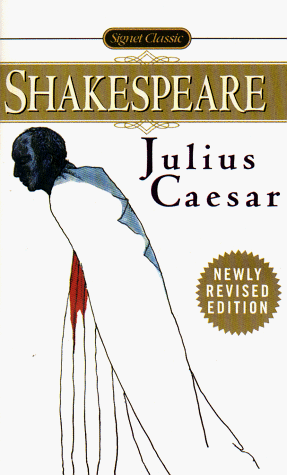
1. The qualities of a good leader is one of the play's important themes. To explore this theme, students can do one or more of the following:
• Discuss the qualities possessed by a good leader. Generate a list of these qualities
Qualities of a good leader:
• Task-oriented
• Honest (actions)
• Charismatic
• Able to take control
• Serious
• Spokesman
• Reliable
• Self-sacrificing (people first)
• Intelligent
• Foreign policy
• Not greedy
• Equality for all (treatment)
• Think before acting
• Prioritize issues
• Out of the box
• Make a list of the leadership qualities that the class feels are legitimate. Compare and contrast the two lists and compile one list of leadership qualities that the class feels a good leader should have. Prioritize the list.
• Examine the effect a leader's domestic relationships, physical condition, and/or athletic ability may have on his or her leadership abilities.
2. Friendship is another major theme in the play. Explore this theme by answering the following questions:
• How far would you go to stop a friend from harming your country?
I would take it in a way that if my friend were harming my country, he or she would not be my friend to begin with. Like anyone, it would be hard to go against any of your friends, but sometimes you have to do what is right to save the many lives of others.
• How far would you go to obtain revenge on someone or some group who destroyed your best friend?
If my friend was as close as family with his or her life impacting mine as well, I would do what it took to make that person feel the pain that I would have. I probably would not kill for religious reasons, but I would go far to an extent. The people in my life make me who I am, and if my best friend was destroyed, then I would be, too.
• Is there anything for which you would betray a friend?
Yes, most likely for harming anyone in my family or for love. If someone or something destroys anything that hits close to home, then there would definitely be revenge.
• Which is more important to you, friendship or personal principles? Why?
I would go for personal principals, but I believe that friendship is more important. Through friendship, you can possibly learn some of your own personal principles, such as being able to forgive, compromise, and be honest. Through friendship, you can learn a lot about yourself that you did not know in the past and become a better person by making personal principles due to that friendship.
3. One of the most sensitive issues in the play is suicide. Research attitudes toward suicide held by the following cultures: ancient Roman, modern Japanese, and modern American. Compare and contrast these attitudes in class presentations or in written essays.
In ancient Rome, suicide was often used for execution where you either choose to commit suicide or have a secondary option, which was usually torture. It was considered honorable and it was the ultimate sacrifice where you either died for God or for your country. You would never surrender to your opponent either. In modern Japan, a type of suicide, known as Seppuku, is seen frequently to end shame (such as losing a job, etc.). In the past, the Seppuku ritual was seen as honor towards the samurais. Like ancient rome, suicide was seen as honorable, an ultimate sacrifice to die for God or your country and to never surrender to your opponent. In modern America, suicides occur because of depression or possessing a mental disorder. It may also be for freedom, love, and to relieve stress and confusion. In modern America, suicide is not seen as honorable because it questions the persons' morality and sanity. From the Bible, people who commit suicide in America would be considered as being sinful and eventually lead to going to Hell.
4. The role of fate and superstition is another theme.
• To what extent can we control the future?
We can control parts of our future due to our actions in the present, but because our world is a difficult place, our actions in the present can change what we expect to occur in the future. We do have control over our future, but I believe that God, due to predetermination, has the overall control towards the end of our life.
• How superstitious are you? Do you have any good luck rituals that you perform before important occasions?
I do not consider myself to be superstitious, but I sometimes do pray before I do anything that is important like tests or making decisions hoping that I pass or that the decision goes as I planned.
• Do you watch for omens before important events?
At times, I would try to find signs to see if an event would end up a success or a failure. Usually if I have an important event in my life and I find the first sign of bad luck or if things do not go as planned, then it almost always ends up ruining the rest of the event.
• Do you read your horoscope every day, and do you follow its advice?
Because of my religion, I am not supposed to be reading the horoscope, but I do for my own curiousity. Occasionally, I read my horoscope at the end of the day to see if it was actually true, and sometimes it is, but I do not believe in horoscopes. I basically just read my horoscope for amusement.


